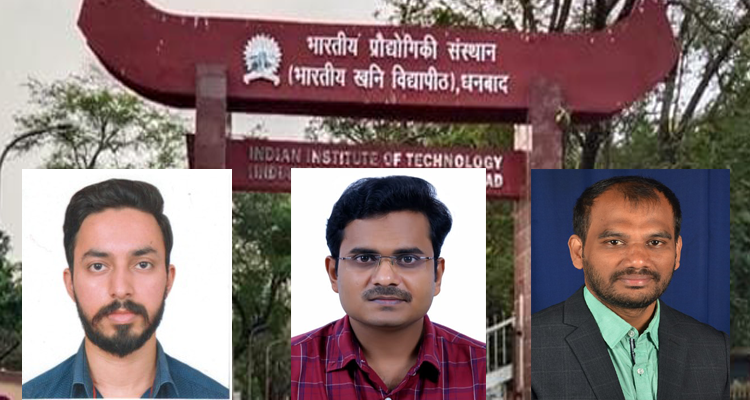JNS: IIT-ISM faculty member’s idea for developing advanced materials through recycling or reuse of scrap, selected among the top 75 ideas of the Life Global Call for Ideas and Papers by NITI Aayog.
The idea of a three-member team of faculty members, including two of IIT-ISM Dhanbad, for developing advanced materials through the recycling of scraps with the help of a mobile application has been selected in the top 75 ideas for the LiFE Global Call for Ideas and papers, informed, Rajni Singh Dean, Media & Branding of ISM.
The team of three assistant professors, including Dr Ajay Bhandari of the Department of Mechanical Engineering and Dr Rahul MR of Fuel, Minerals and Metallurgical Engineering of IIT-ISM, besides Dr Ashok Kamraj of the Department of Material Science and Metallurgical Engineering of IIT Hyderabad through their project aims to change the behaviour pattern of communities to dispose of reusable commodities at recycling centres.
Elaborating on the selection of their idea among the 75 ideas, Dr Ajay Bhandari said, “NITI Aayog received 2538 idea proposals from 67 countries under this call.” “Out of this, the top 75 ideas were shortlisted in two phases, and our idea is one of them,” said Dr Bhandari.
“We initially submitted the idea in November 2022, and the first phase of selection was conducted during the same month, while the second phase of selection was completed in
March 2023” detailed Bhandari.
He explained some background, saying, “In the present scenario, material recycling is essential for efficient energy utilization and reducing environmental degradation.”
“There needs to be more awareness about recycling materials, vendor details, economic benefits and environmental impact among common people,” elaborated Bhandari.
Moreover, there is also a need to encourage small and medium-scale industries to use scientifically proven recycling methods that are also profitable.
“The proposed mobile application will guide the community to connect with potential industries and vice versa as it will have consolidated details from various scientific studies related to materials recycling, data analysis, relevant recycling industries and many more,” explained Bhandari and added that the application would serve as a database to connect the larger community with waste collection centres and recycling units.
In addition, the application will be embedded with artificial intelligence to guide the individual to connect to relevant industries for better benefits.
“The application will have literature for effectively developing advanced materials from scraps by integrating experimental and computational tools to help venture into the recycling domain,” divulged Bhandari and added that this will serve as scientific proof for value-added material for communities.
In the long term, the application will bring behavioural changes in the community and establish a systematic and profitable model for recycling scrap.




